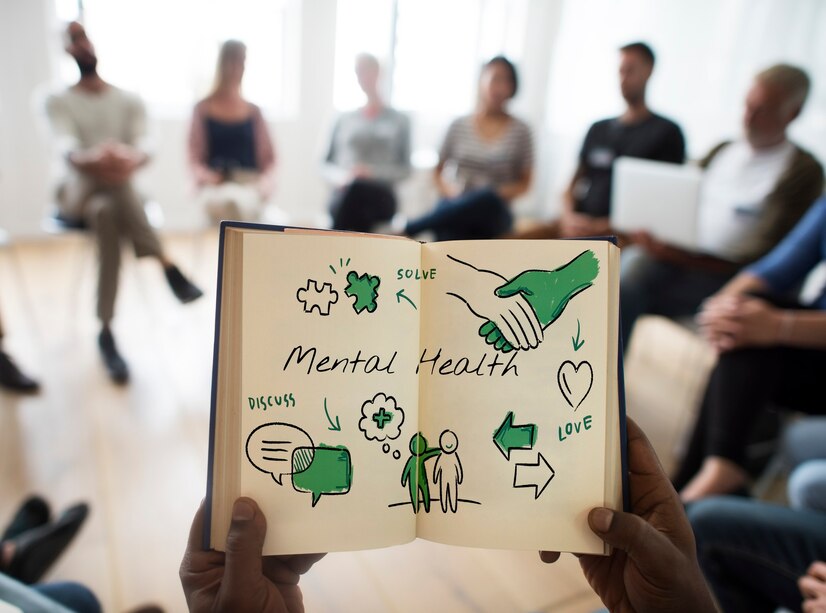How Mental Health Education Programs Improve Client Outcomes
Mental health professionals carry the weighty responsibility of guiding individuals through some of the most difficult periods of their lives. To provide truly effective, compassionate, and evidence-based care, clinicians must stay informed, adaptable, and continually developing their skills. This is where structured mental health education programs come in—not just as tools for professional growth, but as critical drivers of better outcomes for clients.
In a field where best practices are constantly evolving and client needs are increasingly complex, continued education is not optional—it’s essential. Let’s explore how these programs actively shape and enhance the quality of care clients receive.
1. Keeping Pace with an Evolving Mental Health Landscape
Mental health care today looks vastly different than it did even a decade ago. From the widespread adoption of teletherapy to growing awareness of trauma-informed care, the standards and delivery of treatment are in constant motion.
Education programs help practitioners keep up with:
- New treatment modalities (e.g., EMDR, DBT, ACT)
- Shifting diagnostic frameworks (DSM updates, ICD standards)
- Emerging public health concerns (e.g., pandemic-related anxiety, climate grief)
- Technology in therapy (virtual platforms, AI-assisted tools)
When clinicians are updated on the latest research and tools, they can offer more nuanced, personalized care—leading to greater engagement, reduced relapse, and more sustained improvement for clients.
2. Enhancing Clinical Confidence and Decision-Making
Ongoing training refines critical thinking and decision-making skills that are essential in clinical practice. When clinicians are confident in their skills, they can:
- Respond more effectively in crisis situations
- Choose appropriate treatment strategies based on the client’s background and diagnosis
- Adapt their therapeutic approach in real time based on client feedback or resistance
Education boosts not only what professionals know but how they use that knowledge. This leads to more strategic and individualized care, especially when dealing with complex or co-occurring disorders.
3. Promoting Ethical, Culturally Competent Care
Clients come from diverse backgrounds, and no two experiences of mental illness are alike. Mental health education programs often include modules focused on cultural humility, ethics, and inclusive practices, which help clinicians:
- Recognize and address implicit biases
- Adjust their approach to reflect the client’s cultural values and lived experience
- Navigate ethical dilemmas with confidence
Research has shown that culturally competent care increases client trust, retention, and satisfaction—all of which directly impact therapeutic outcomes.
4. Improving Therapeutic Alliance and Communication
The therapeutic alliance—the relationship between therapist and client—is one of the strongest predictors of success in mental health treatment. Education programs that teach enhanced communication strategies, active listening, and empathy can significantly improve this alliance.
With better training, professionals can:
- Build stronger rapport in early sessions
- Address ruptures in the therapeutic relationship when they arise
- Create a more collaborative and empowering environment for clients
When clients feel heard, understood, and respected, they’re more likely to stay committed to treatment and open up about deeper issues—both of which enhance outcomes.
5. Reducing Burnout and Enhancing Provider Well-Being
While it may seem client-focused training only benefits those receiving care, it also plays a key role in clinician well-being. Mental health work is emotionally taxing, and without proper support and learning opportunities, burnout can compromise care quality.
Education programs that focus on:
- Self-care techniques
- Work-life balance
- Managing secondary trauma and compassion fatigue
…help professionals stay mentally strong and emotionally present for their clients. A well-supported therapist is more capable of being attentive, patient, and effective, directly impacting the success of the therapeutic process.
6. Increasing Treatment Accessibility and Efficiency
Programs that train professionals in telehealth, brief therapy models, or group interventions enable clinics and private practices to serve more clients—especially in underserved or rural communities.
Education in these areas helps professionals:
- Deliver care in non-traditional formats
- Improve documentation and workflow
- Reach more people with limited resources
Improved efficiency and accessibility ensure that clients get timely support, which is especially important during acute mental health episodes or crises.
7. Fostering Innovation and Integration Across Disciplines
Modern mental health care is increasingly interdisciplinary, involving psychiatrists, social workers, counselors, nurses, peer specialists, and case managers. Education programs that encourage collaboration and shared learning help align efforts across care teams, making treatment more seamless for clients.
For example:
- A shared understanding of trauma-informed approaches ensures consistency across sessions
- Training in care coordination helps reduce duplication of services
- Integrated programs enable better management of co-occurring physical and mental conditions
The result? More cohesive, coordinated care that leads to faster recovery and improved client satisfaction.
Conclusion: Better Training = Better Outcomes
At their core, mental health education programs are not just about certifications or professional development. They are about elevating the human experience of care. Every time a clinician refines a skill, learns a new technique, or deepens their understanding of human behavior, a client receives better support.
By investing in mental health continuing education, professionals can honor their responsibility to those they serve. And in doing so, they help foster more resilient clients, stronger therapeutic relationships, and ultimately, a healthier, more compassionate society.


